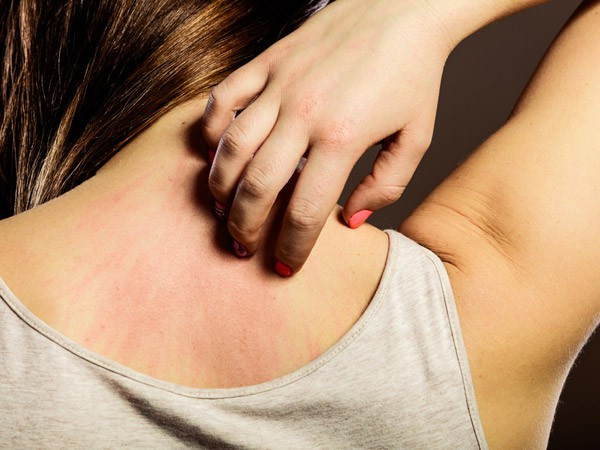Itching that never stops: Beware of 7 deadly diseases
Imagine the feeling of a mosquito bite or an ant bite on your skin; it can be very itchy and make you want to scratch the area hard and for a long time. So we can see how uncomfortable itching can be.
Itching is a symptom of many diseases, not a disease in itself. There are different types of itching, depending on what is causing it. Some types of itching, like that from a mosquito bite, only last for a few minutes, while others, like the itching from a severe allergic reaction, can last for days or even years!
Persistent itching can make it difficult to perform daily activities. Constant scratching can also cause feelings of fatigue and embarrassment.

Although usually harmless, persistent itching can also be a sign of some deadly diseases:
1. Kidney disease
The kidneys are vital organs that filter toxins and waste from the body. Many studies have noted that people with kidney disease, whether mild or severe, experience itchy skin.
If you have chronic kidney disease such as kidney failure, the itching can be very intense. It is said that toxins and waste products that the kidneys cannot remove from the body will seep into the blood and cause itching.
2. Liver disorders
Like the kidneys, the liver is another essential organ in the body that helps digest and break down nutrients to provide energy for the body. If you are itchy all over for no reason, it could be an early symptom of liver disease. When excess bile builds up in the liver, it begins to acidify and seep into the bloodstream, causing severe itching of the skin.
3. Spinal disease
If you have severe itching in the back and mid-back area of your body, without a rash, it could be a sign of spinal disease, often caused by injury or inflammation of certain areas of the spinal cord. When the nerves in and around the spinal cord become damaged or inflamed, they become "pinched" when sitting and moving, causing itching in that area.
4. Celiac disease
If you have intense itching, along with red spots or blisters around your knees, elbows, buttocks and hairline, it could be a symptom of dermatitis herpetiformis, a form of celiac disease that affects the skin.
The disease usually occurs when people eat foods rich in gluten that their bodies cannot process due to Celiac disease. So a gluten-free diet and medication can treat the disorder, but it can take a long time to get better!
5. Lymphoma
Lymphoma is a type of blood cancer that affects the body's lymph nodes. This type of cancer is often difficult to treat and has a high recurrence rate. People often experience itchy skin all over the body without a rash. This is because cytokines cause an inflammatory response in the skin cells, causing severe itching.
6. Thyroid disease
There are two types of thyroid disease. The first is called hypothyroidism, which is an underactive thyroid gland, and the second is called hyperthyroidism, which is an overactive thyroid gland. Thyroid disease is an endocrine disease that may require long-term treatment. Hormonal imbalances caused by thyroid disease can also cause itchy skin in many patients.
7. Menopause
Menopause, although not a disease, can cause some negative side effects in many women. As we know, menopause is a natural phenomenon that happens to every woman, after the age of 45, when the menstrual cycles stop.
During menopause, many hormonal changes occur in the body. Due to these changes, the body's natural oils may decrease in production, causing dry and itchy skin. Hormone therapy can correct this problem.
